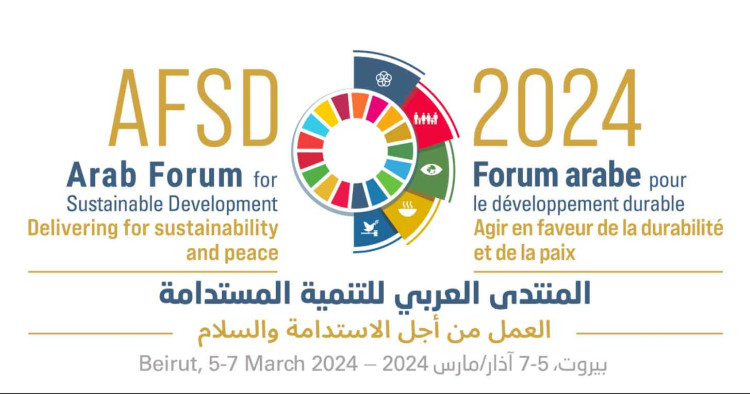Over three days, March 5-7, 2024, the United Nations’ Economic and Social Commission for Western Asia (ESCWA) hosted the annual Arab Forum for Sustainable Development (AFSD), in partnership with the League of Arab States and other UN agencies working in the region. AFSD is the primary regional mechanism for reviewing the implementation of the 2030 Agenda for Sustainable Development in the Arab Region.
I was honored to take part in an AFSD special session on “Collaborative Futures: Strategic Foresight for Sustainable Development in a World of Crisis” — and excited to see the inclusion of this session in the agenda as another example of the growing attention to foresight-driven analysis and decision-making among leaders in the Arab world. You can watch an excerpt from this session with my remarks below:
Strategic foresight and futures studies have long been valued as a means of developing strategies to address the issues of societal development and transformation that are important to governments and intergovernmental organizations (IGOs) around the world. And as the AFSD session’s title conveys, the importance of strategic foresight is greater today than it has ever been, in the midst of what some describe (aptly, in my view) as a “polycrisis.” The World Economic Forum “Global Risk Report 2023” describes a cost-of-living crisis as the most severe global risk over the next two years; biodiversity loss and ecosystem collapse as one of the fastest deteriorating global risks over the next decade; and six environmental calamities in the top 10 risks over the next 10 years.
Strategic foresight is essential for anticipating the impacts of such challenges and developing strategies for contending with them. It is also, and just as importantly, a means of envisioning alternative futures that are free of such challenges, and where the sources of these and other crises have been successfully addressed. That envisioning is never just a fanciful exercise — far from it. It is how leaders, with the help of foresight practitioners, can identify pathways of specific, concrete actions to create such futures.
Strategic foresight is particularly essential in the Arab region because all of these challenges and others are already being experienced there with greater severity and acceleration than in many other parts of the world. The envisioning of alternative futures by Arab governmental, private sector, and civil society leaders can have a profound positive impact on the citizens of the region — indeed, it is already doing so.
The practice of strategic foresight throughout the Arab region is increasingly vibrant. In January 2020, the Islamic World Educational Scientific and Cultural Organization (ICESCO) established its Strategic Foresight Center with the aim of bringing together multidisciplinary experts from different fields to conduct futures studies that bridge the gap between academic research and decision-making in the Islamic world. ESCWA is conducting a series of Megatrend Studies, looking at socio-economic-technological dynamics likely to have broad and deep impacts on Arab societies that signal the need for near-term policy actions. Here, at the Middle East Institute, we have established our Strategic Foresight Initiative program to examine key drivers of change and the dynamic inter-relationships between them that will shape alternative futures for the Middle East and North Africa region. It is my privilege to lead that program and to have led with my MEI team the first two of ESCWA’s Megatrends Studies. The first, on future pathways for electric mobility in Arab countries, was published in December 2022; the second, on pathways for the Metaverse, is forthcoming. We are also proud to be members of the Global Futures Society, a consortium of 40 strategic foresight organizations convened by the Dubai Future Foundation to work together with one another and with the Foundation on an ongoing basis.
The practice of strategic foresight informs, in unique ways, the decisions and actions that leaders can take today and in the near-term future, in advance of anticipated change, to affect the longer-term future. This includes decisions and actions to make their organizations, businesses, communities, and countries better prepared to withstand or forestall anticipated negative futures. It also includes decisions and actions today to realize the benefits and opportunities in anticipated positive futures. It is exciting, and important, to see the practice and its benefits advancing as they are in the Arab region.
Steven Kenney is the director of the Strategic Foresight Initiative program at the Middle East Institute. He is also the founder and principal of Foresight Vector, a strategy consultancy.
The Middle East Institute (MEI) is an independent, non-partisan, non-for-profit, educational organization. It does not engage in advocacy and its scholars’ opinions are their own. MEI welcomes financial donations, but retains sole editorial control over its work and its publications reflect only the authors’ views. For a listing of MEI donors, please click here.













